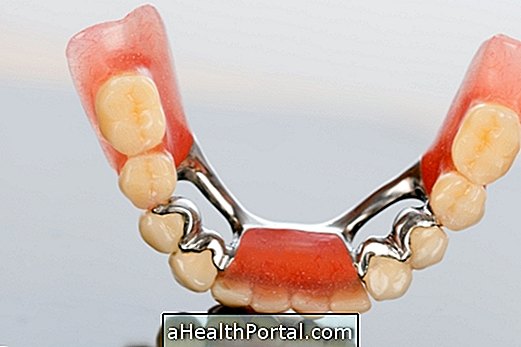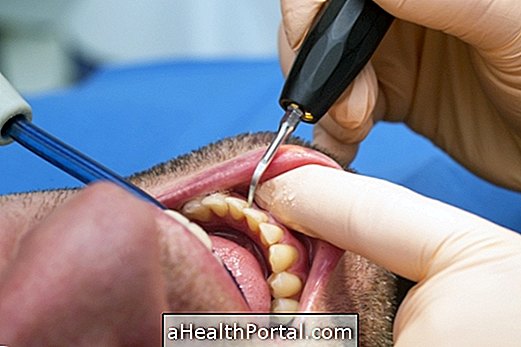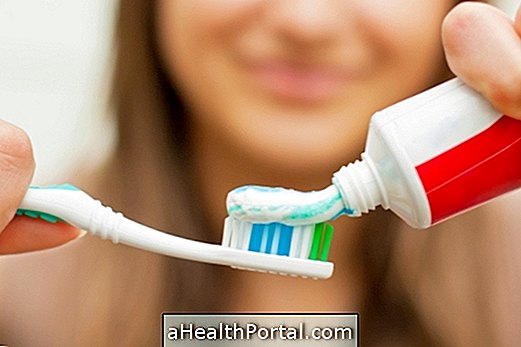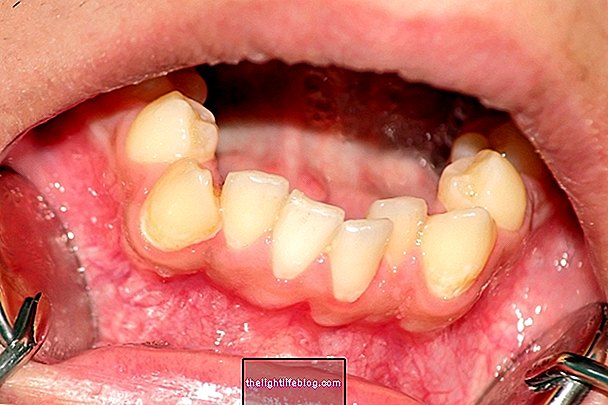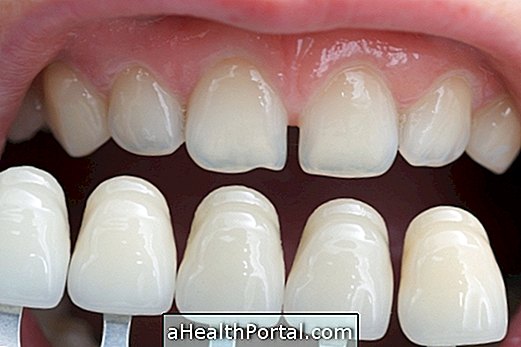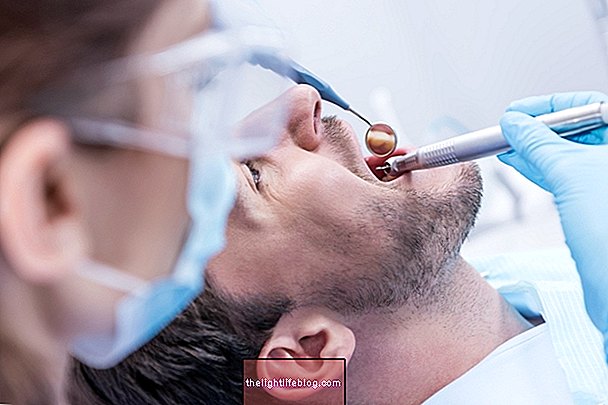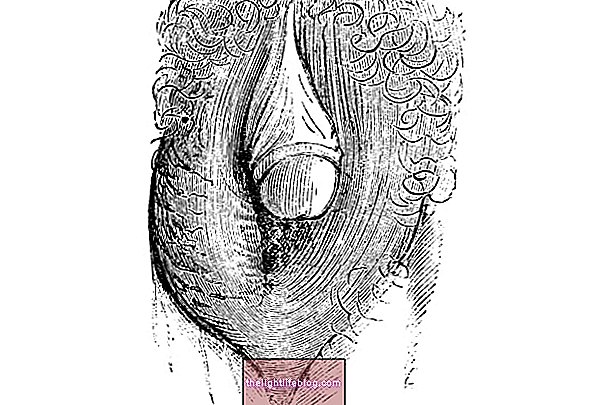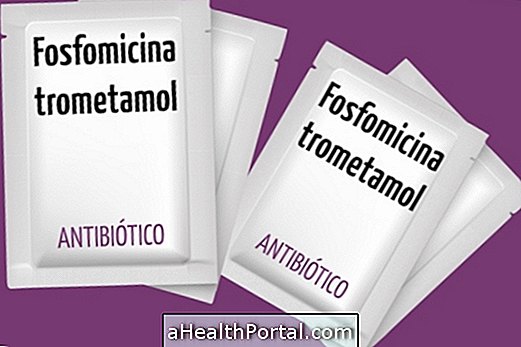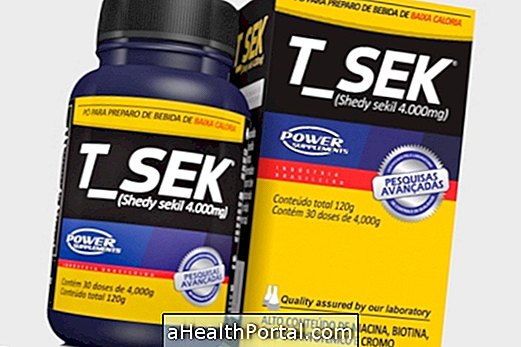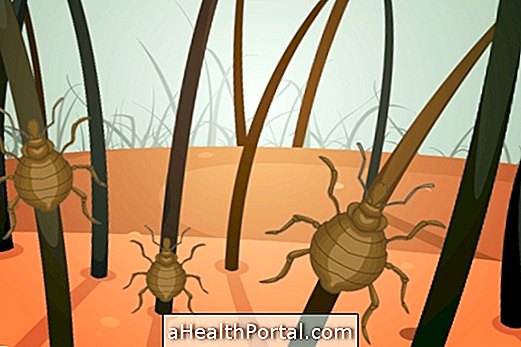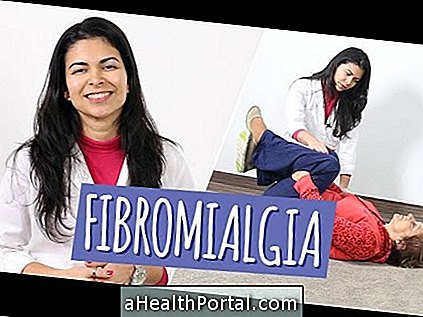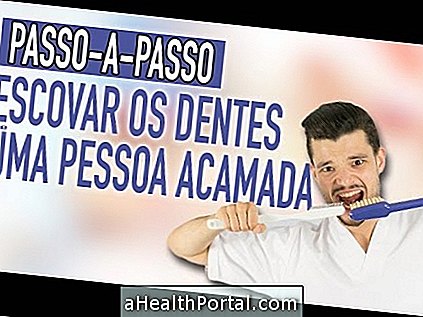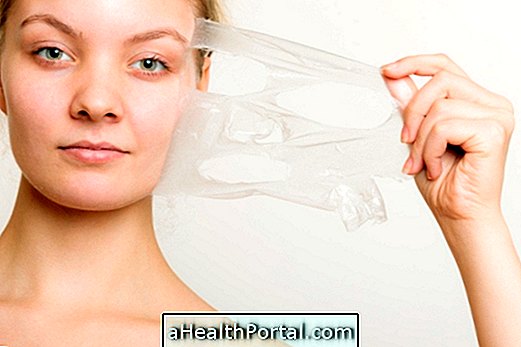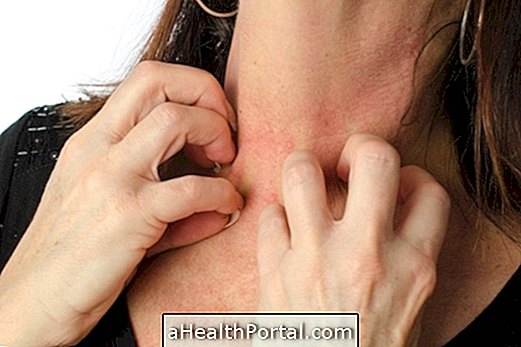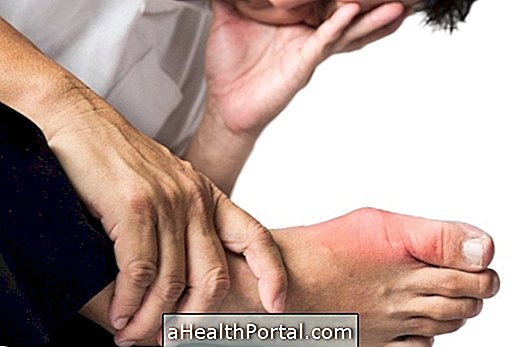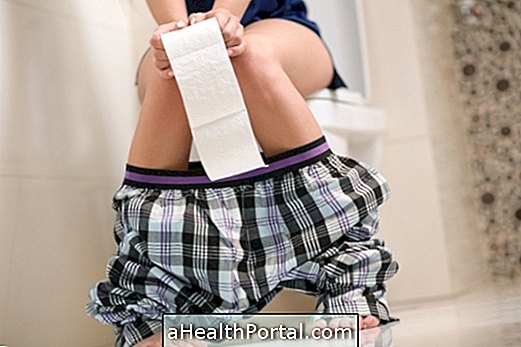Dental caries, also popularly known as rotten teeth, is a tooth infection caused by bacteria that form hard, hard-to-remove plaques at home. In this plaque the bacteria will gradually pierce the enamel of the teeth causing pain and discomfort when they reach the deeper parts of the teeth.
One of the major caries-causing bacteria is Streptococcus mutans, especially in children, which can be easily transmitted from one person to another through close contact such as kissing the mouth or splitting cutlery, for example. So when you have a caries it is recommended to avoid kissing in the child's mouth, even if it is a child, nor to taste his food, to know if it is very hot, using the same cutlery.
However, the main cause of the development of caries continues to be lack of oral hygiene, especially when associated with the exaggerated consumption of foods with sugar, such as cakes, sweets or biscuits, as they are factors that facilitate the development of bacteria in the teeth.
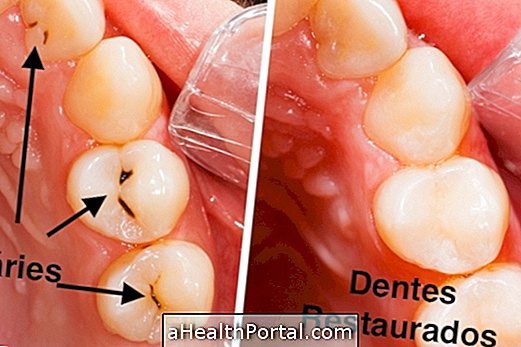
Signs and symptoms of dental caries
The main symptom of caries is toothache, but in some cases it may still exist:
- Pain that worsens when eating or drinking something sweet, cold or hot;
- Presence of holes in one or more teeth;
- Brown or white spots on the surface of the tooth;
- Sensitivity when touching a tooth;
- Gums swollen and sore.
In the initial phase, the caries often does not show any symptoms and therefore, when the first symptoms appear, it is very important to go to the dentist immediately to confirm the diagnosis and start the appropriate treatment, avoiding complications such as a more serious infection or the loss of one teeth.
How to confirm the diagnosis
The best way to confirm the diagnosis of dental caries is to consult a dentist, who may use special equipment that allows you to observe the inside of the mouth and all sides of the teeth, looking for small holes that may indicate the presence of cavities. Sometimes the dentist places an instrument with a very thin tip into the hole to gauge its depth and whether the person feels pain.
In addition, if the caries lies between two teeth, for example, the dentist may still make an X-ray to identify it.
Treatment for dental caries
The only way to treat a dental caries is by consulting with the dentist, there is no home treatment that can eliminate it. Sometimes only 1 session is enough to eliminate cavities, with a plug in the tooth, but when many teeth are affected, the treatment can be longer and more costly, requiring treatment of the canal or even removal of the tooth, which then needs to be replaced by a prosthesis.
Learn more details about dental caries treatment.

How to prevent cavities
The best strategy to avoid caries is to brush your teeth at least 2 times a day to eliminate food debris from your teeth and prevent plaque buildup. Taking a sip of water after eating is also a good strategy, especially when you can not brush your teeth.
However, other important cares include:
- Decrease your intake of sugar and foods that cling to your teeth;
- Prefer a toothpaste with fluoride whenever you brush your teeth;
- Eat 1 apple after meal to clean teeth;
- Eat 1 slice of yellow cheese like cheddar, for example to normalize the pH of the mouth, protecting the teeth from the bacteria that cause cavities;
- Always have a sugar-free gum nearby because chewing encourages salivation and this protects the teeth because it does not allow the bacteria to produce the acid that corrodes the teeth.
- Flossing and mouthwashing, especially before bedtime, and if using appliance, always after eating. Here's how to brush your teeth properly so you do not have decay.
In addition, it is advised to go to the dentist every 6 months, to do a deeper cleaning of the teeth, completely removing plaque. In some cases, the dentist may also apply a thin layer of fluoride on the teeth, especially those of children to strengthen the teeth.
Foods That Prevent Cavities
Watch the following video:

Besides the apple helping to clean the teeth and the yellow cheeses balance the pH of the mouth, reducing the risk of dental caries, there are some foods that can help in this control:
- Fibrous foods such as carrots, cucumbers and celery;
- Protein-rich foods like tuna, eggs and meats, which can also be eaten in sandwich-shaped snacks.
Foods that should be avoided are sweets, especially if it is a snack or ingested alone in the middle of the afternoon, because they cause fewer problems when consumed after the meal, such as dessert.
